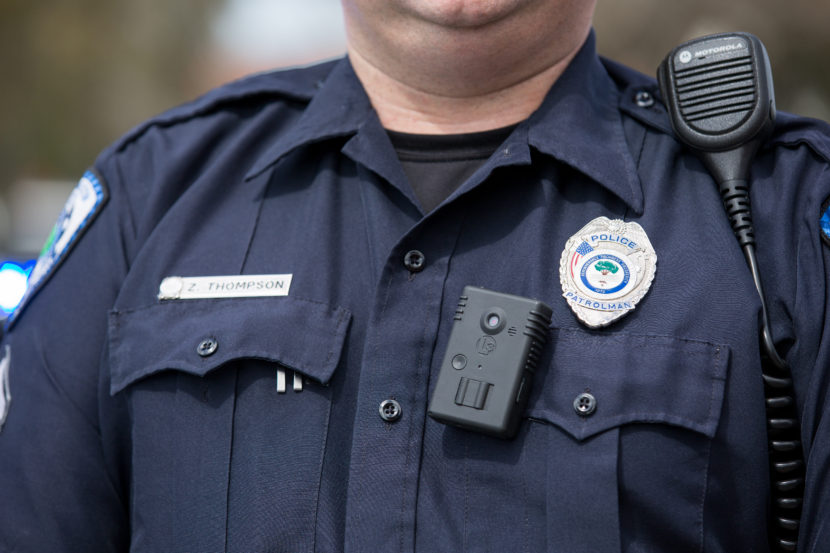
The Juneau Police Department plans to outfit 40 of its officers with body cameras to improve evidence gathering, transparency and accountability.
The department will have the money to buy those cameras after the Juneau Assembly on Monday approved appropriating $19,360 as a partial match for a U.S. Department of Justice grant. However, Juneau Mayor Ken Koelsch and Deputy Mayor Jerry Nankervis opposed the appropriation in the 7-2 vote.
Nankervis is a retired Juneau Police Department captain.

“I have a suspicion that not all of the legality of the body cameras has been worked out yet and it has the potential to cost the city far more for having the body cameras than not having the body cameras,” Nankervis said.
He was skeptical that the cameras would reduce unfounded grievances. He alluded to Kodiak Public Broadcasting Corp.’s lawsuit against the city of Kodiak to release audio and video recordings of three local police officers roughing up a man with autism. The recordings were eventually released.
Juneau Police Chief Bryce Johnson said whatever recordings may show in incidents like that, the public and police are better off with them.

“It’s good if the police did it right, it’s good for the public to know we did it right,” Johnson said. “And if we did it wrong, we need to own that and fix it. And it’s good for the public to know when we do it wrong, that we admit to our mistakes and we make them better.”
Nankervis also said he had concerns about body cameras infringing on privacy. Johnson said to the extent that police infringe on privacy, they’re already doing it with their eyes and notes. He said cameras just create a more accurate record.
“My firm professional opinion is the benefit we get out of them far outweighs the potential problems that they may come back and bring us,” Johnson said.
Nankervis said cameras and recordings create an expectation that everything is recorded, and, conversely, that when something isn’t recorded, it reduces the chance of prosecution and could create suspicion that authorities have tampered with the recordings.
Mayor Koelsch, who participated by phone, did not speak to his vote.
